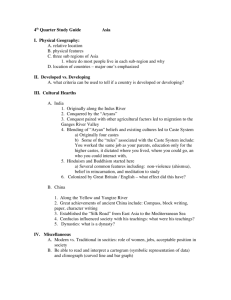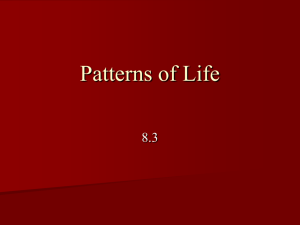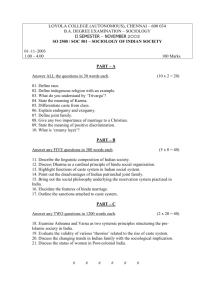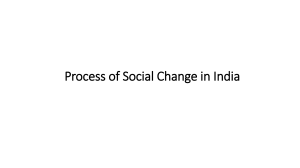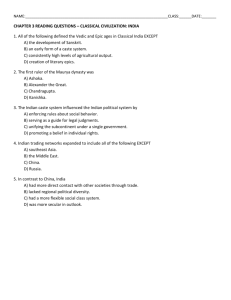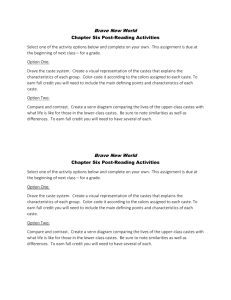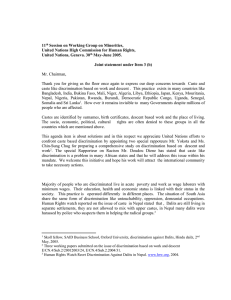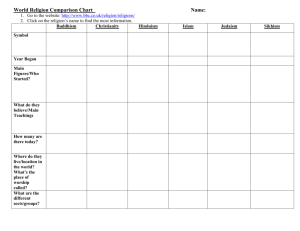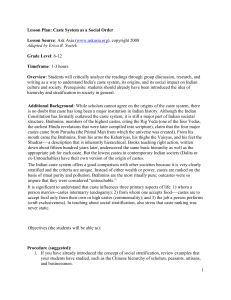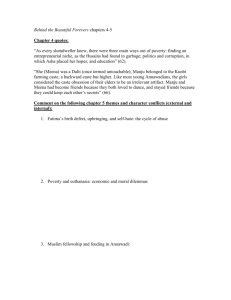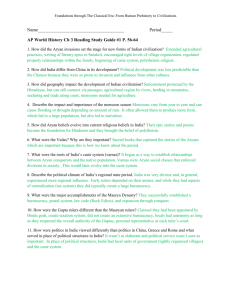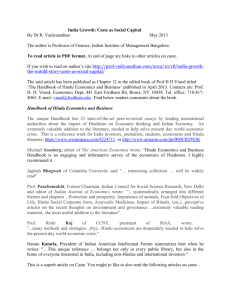The Varnas Class System
advertisement
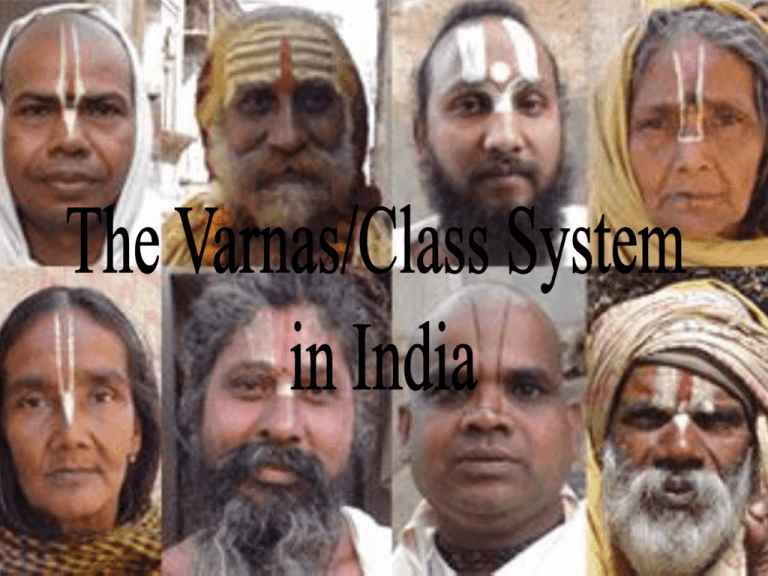
Warm Up What types of jobs do you think the people are doing? Who do you think is the most powerful? Who do you think is the least powerful? Why? Origins of the Varnas/Class System • Varnas/class in India was/is a system of social hierarchy that determines social status. All people in India are born and ranked into one of the four major castes known as jatis. • According to Hindu belief, the four castes were formed from the body of the god Purusha Varnas/ Class Brahmin Part of Purusha Jatis/Castes Duties head Priests, teachers Teach people about Hinduism Kshatriaya shoulders Warriors, rulers Protect society Vaisya thighs Commoners, Farmers. Merchants, artisans Work the land Shudra feet servants Serve classes higher than them Not allowed to hear, repeat the Vedas Outcastesthe Untoucha bles Dalit Noneconsidered outside the caste system Did the work that was the most unclean, “polluted labor” Cremating corpses, handling skins of dead animals, sweeping, cleaning Big Ideas • The idea of different classes of people is supported by Hindu ideas of karma, dharma, and reincarnation. Being born into a particular caste was thought of as reflecting good or bad deeds of the previous life. • The class system allows people to find a unique identity in Indian society. But it also facilitated exploitation of the poor by the wealthy and powerful. Changes Over Time: The Caste System Today • Article 15 of Indian Constitution, passed in 1950, prohibits any discrimination based on class. • The government has set up the “reservation” system (positive discrimination) which sets up quotas for certain jobs. However this has led to protests as people complain of reverse discrimination. Changes Over Time (con’t) • The Untouchable/Dalit population is about 16% of the total population of India, around 165 million. There is still much discrimination and crimes committed against them. Discussion Questions • What are the patterns between the class system in India to other systems of social hierarchy? • How does the class system contribute to order in Indian society? • What are the major ethical issues of dividing people in classes? • Do you think that Hindus would have the same perspective of the “fairness” of the class system as Americans today would? Explain.
